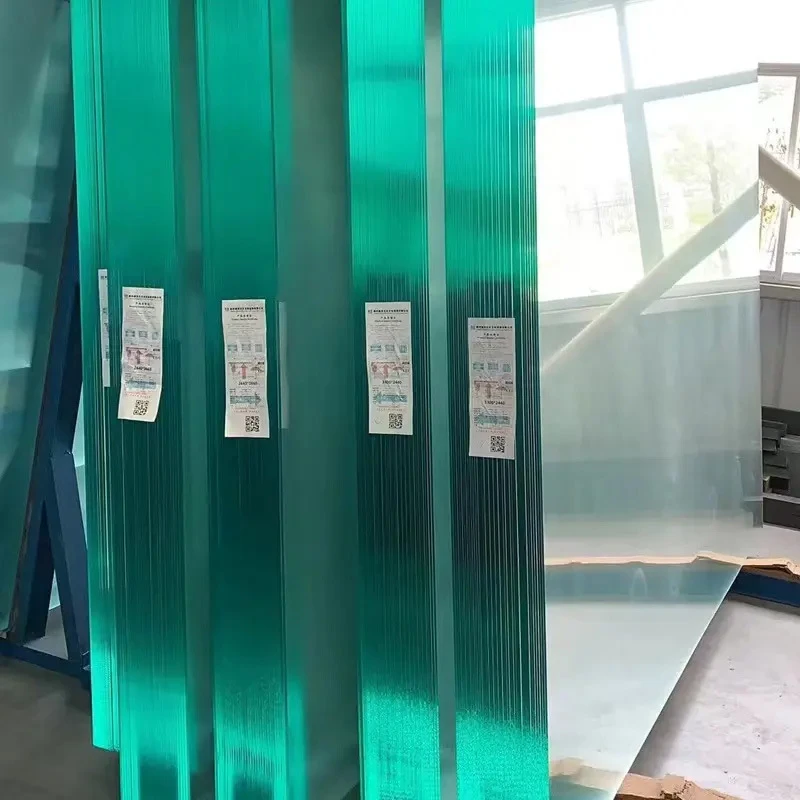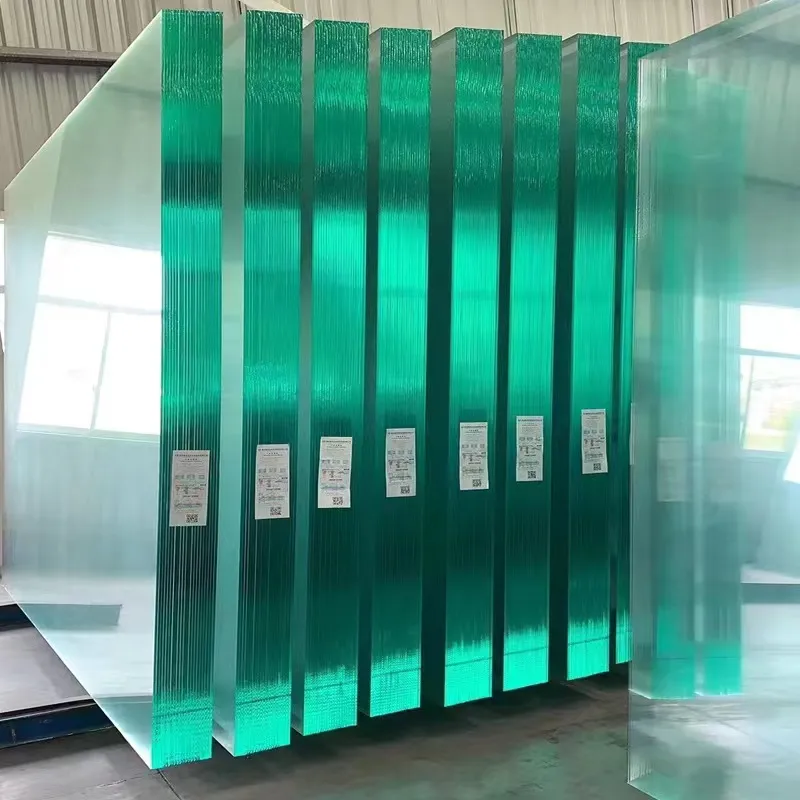Float glass, a term often heard but not always understood, represents a fundamental cornerstone in modern architectural and industrial applications. Used extensively in windows, doors, and even advanced technological devices, its creation and application are an exemplary display of human ingenuity and technological advancement.

Developed in the 1950s by Sir Alastair Pilkington, the float glass process revolutionized the glass-making industry. This method involves pouring molten glass onto a bed of molten tin. Due to the higher density of tin, the glass floats, creating a smooth and even surface as the glass spreads out. As it cools, it forms a flat, uniform sheet. This technique not only produces high-quality glass but also does so more efficiently and cost-effectively than previous methods. The float process accounts for over 90% of the world’s glass production today, highlighting its critical role in the industry.
The significance of float glass lies in its versatility and high quality. Its applications are diverse, extending from the construction of skyscrapers to everyday household use. In architecture,
float glass is prized for its strength and clarity. The production method allows for large panes that have no optical distortion, which is essential for both aesthetic and functional purposes. This clarity and size capability enable architects to design elegant, light-filled spaces while maximizing energy efficiency. The glass can also be treated with various coatings to enhance thermal insulation or to reflect ultraviolet and infrared rays, contributing further to building sustainability.

In the realm of interior design, float glass is highly prized for its aesthetic value. It is used in shower enclosures, glass doors, tabletops, and mirrors. Coatings and etchings transform basic float glass into decorative elements that add value and sophistication to a space. Additionally, its durability makes it an excellent choice for surfaces that must withstand daily wear and tear while maintaining their appearance over time.
float glass meaning
From an industrial perspective, float glass serves as a crucial component in the automotive and technology sectors. In automobiles, it is used for windows and windscreens, providing safety and noise reduction features that are essential for modern vehicles. The consistency and strength of float glass ensure vehicle safety standards are met reliably. In technology, its application can be seen in smartphones, TVs, and computer monitors. The precision manufacturing processes made possible by float glass allow for the production of thin, clear, and durable screens, critical for modern electronic devices.
The environmental impact of float glass production cannot be overlooked. The industry has taken strides to reduce its carbon footprint by recycling glass and utilizing energy-efficient furnaces. Additionally, the life-cycle of float glass—from production to end-of-use—is increasingly considered in design, advocating for sustainable practices such as reuse and recycling. This dedication to sustainability not only meets regulatory requirements but also taps into the growing consumer demand for environmentally responsible products.
Investment in research and development continues to push the boundaries of float glass technology. Innovations such as switchable privacy glass, which changes from clear to opaque with the touch of a button, demonstrate the potential for future applications. Similarly, energy-efficient smart windows that adapt to changing weather conditions are gaining popularity, illustrating the evolving role of float glass in achieving energy efficiency goals.
Float glass remains a testament to engineering excellence, providing a product that is both functional and adaptable to modern needs. Its profound impact across various industries underscores its importance and secures its place as a material of choice for both current and future innovations. As the world moves towards more sustainable and technologically advanced infrastructures, float glass will undoubtedly remain at the forefront, serving as a key component in realizing these advancements.
 Afrikaans
Afrikaans  Albanian
Albanian  Amharic
Amharic  Arabic
Arabic  Armenian
Armenian  Azerbaijani
Azerbaijani  Basque
Basque  Belarusian
Belarusian  Bengali
Bengali  Bosnian
Bosnian  Bulgarian
Bulgarian  Catalan
Catalan  Cebuano
Cebuano  Corsican
Corsican  Croatian
Croatian  Czech
Czech  Danish
Danish  Dutch
Dutch  English
English  Esperanto
Esperanto  Estonian
Estonian  Finnish
Finnish  French
French  Frisian
Frisian  Galician
Galician  Georgian
Georgian  German
German  Greek
Greek  Gujarati
Gujarati  Haitian Creole
Haitian Creole  hausa
hausa  hawaiian
hawaiian  Hebrew
Hebrew  Hindi
Hindi  Miao
Miao  Hungarian
Hungarian  Icelandic
Icelandic  igbo
igbo  Indonesian
Indonesian  irish
irish  Italian
Italian  Japanese
Japanese  Javanese
Javanese  Kannada
Kannada  kazakh
kazakh  Khmer
Khmer  Rwandese
Rwandese  Korean
Korean  Kurdish
Kurdish  Kyrgyz
Kyrgyz  Lao
Lao  Latin
Latin  Latvian
Latvian  Lithuanian
Lithuanian  Luxembourgish
Luxembourgish  Macedonian
Macedonian  Malgashi
Malgashi  Malay
Malay  Malayalam
Malayalam  Maltese
Maltese  Maori
Maori  Marathi
Marathi  Mongolian
Mongolian  Myanmar
Myanmar  Nepali
Nepali  Norwegian
Norwegian  Norwegian
Norwegian  Occitan
Occitan  Pashto
Pashto  Persian
Persian  Polish
Polish  Portuguese
Portuguese  Punjabi
Punjabi  Romanian
Romanian  Russian
Russian  Samoan
Samoan  Scottish Gaelic
Scottish Gaelic  Serbian
Serbian  Sesotho
Sesotho  Shona
Shona  Sindhi
Sindhi  Sinhala
Sinhala  Slovak
Slovak  Slovenian
Slovenian  Somali
Somali  Spanish
Spanish  Sundanese
Sundanese  Swahili
Swahili  Swedish
Swedish  Tagalog
Tagalog  Tajik
Tajik  Tamil
Tamil  Tatar
Tatar  Telugu
Telugu  Thai
Thai  Turkish
Turkish  Turkmen
Turkmen  Ukrainian
Ukrainian  Urdu
Urdu  Uighur
Uighur  Uzbek
Uzbek  Vietnamese
Vietnamese  Welsh
Welsh  Bantu
Bantu  Yiddish
Yiddish  Yoruba
Yoruba  Zulu
Zulu 


